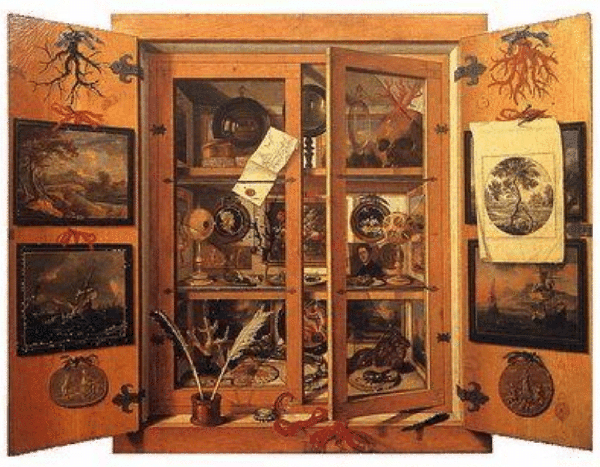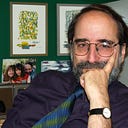WONDERCABINET by Lawrence Weschler
ABOUT
LAWRENCE WESCHLER (born 1952, Van Nuys, California), a graduate of Cowell College of the University of California at Santa Cruz (1974), was for over twenty years (1981-2002) a staff writer at The New Yorker, where his work shuttled between political tragedies and cultural comedies. He is a two-time winner of the George Polk Award (for Cultural Reporting in 1988 and Magazine Reporting in 1992) and was also a recipient of Lannan Literary Award (1998).
His books of political reportage include The Passion of Poland (1984); A Miracle, A Universe: Settling Accounts with Torturers (1990); and Calamities of Exile: Three Nonfiction Novellas (1998).
His “Passions and Wonders” series currently comprises Seeing is Forgetting the Name of the Thing One Sees: A Life of Contemporary Artist Robert Irwin (1982); David Hockney’s Cameraworks (1984); Mr. Wilson’s Cabinet of Wonder (1995); A Wanderer in the Perfect City: Selected Passion Pieces (1998) Boggs: A Comedy of Values (1999); Robert Irwin: Getty Garden (2002); Vermeer in Bosnia (2004); and Everything that Rises: A Book of Convergences (February 2006). Mr. Wilson was shortlisted for both the Pulitzer Prize and the National Book Critics Circle Award; and Everything that Rises received the 2007 National Book Critics Circle Award for Criticism
Recent books include a considerably expanded edition of Seeing is Forgetting the Name of the Thing One Sees, comprising thirty years of conversations with Robert Irwin; a companion volume, True to Life: Twenty Five Years of Conversation with David Hockney; Liza Lou (a monograph out of Rizzoli); Tara Donovan, the catalog for the artist’s recent exhibition at Boston’s Institute for Contemporary Art; Deborah Butterfield, the catalog for a survey of the artist’s work at the LA Louver Gallery; The Disappeared (catalog for a show of art commemorating the victims of the Dirty Wars in South America, out of the North Dakota Museum of Art), and other monographs on the work, variously, of Eric Fischl, Daniel Crooks, April Gornik, Fred Tomaselli, Liza Lou, and Theo Jansen. His more recent additions to “Passions and Wonders,” include the collection Uncanny Valley: Adventures in the Narrative; Domestic Scenes: The Art of Ramiro Gomez; and Waves Passing in the Night: Walter Murch in the Land of the Astrophysicists.
His latest are a major volume on his longtime friend, the late neurologist Oliver Sacks: And How Are You, Doctor Sacks? A Biographical Memoir; a collaboration with artist David Opdyke, This Land: And Epic Vintage Mural on the Future of a Country in Ecological Peril; and a reissue of Robert Irwin: Getty Garden.
For over 25 years, Weschler has taught his course on “The Fiction of Nonfiction,” variously, at Princeton, Columbia, UCSC, Bard, Vassar, Sarah Lawrence, Brown, and NYU.
In 2014, Weschler graduated to director emeritus of the New York Institute for the Humanities at NYU, where he has been a fellow since 1991 and was director from 2001-2013, and from which base he had tried to start his own semiannual journal of writing and visual culture, Omnivore. He is also the artistic director emeritus, still actively engaged, with the Chicago Humanities Festival, and sometime curator for New York Live Ideas, an annual body-based humanities collaboration with Bill T. Jones and his NY Live Arts. He is a contributing editor to McSweeney’s, the Threepeeny Review, and The Virginia Quarterly Review; curator at large of the DVD quarterly Wholphin ; ex-chair of the Sundance (formerly Soros) Documentary Film Fund; and director of the Ernst Toch Society, dedicated to the promulgation of the music of his grandfather, the noted Weimar emigre composer. For several years he contributed “Pillow of Air,” a monthly “Amble through the worlds of the visual” column to The Believer.
Once, happening upon a Portuguese edition of Weschler’s 1990 book on torture in Latin America during a photo opportunity in a Rio shopping mall, Chilean General Augusto Pinochet flipped through its pages for a few moments, whereupon he pronounced, “Lies, all lies. The author is a liar and a hypocrite.”
For more, and samples of work: www.lawrenceweschler.com
***
Aide de Camp David Stanford (born 1951, Oakland, California) is also a graduate of Cowell College at the University of California at Santa Cruz (1974), and for twenty years was an editor at Henry Holt (1979-1989) and Viking-Penguin (1989-1998), followed by 20+ years as an independent editor. He has worked on books with a wide range of writers, including Ken Kesey, Charles M. Schulz, Page Smith, Ken Babbs, Alice Notley, Robert Hunter, Anne Waldman, Stewart Brand, David Levinthal, Elizabeth Swados, William S. Burroughs, Taisha Abelar, Art Spiegelman, Quino, John Dizikes, and The Estate of Jack Kerouac. For over 40 years he has also worked with Doonesbury creator Garry Trudeau on books and projects, and since 1995 has served as the Duty Officer for Doonesbury.com. If you need an editor, feel free to get in touch via his editing website.
In 1973 he launched Animal Mitchell Publications, an occasionally-appearing subscriber-based series of almost 50 cartoon booklets. His home base for cartoons is animalmitchell.com.
To find out more about the company that provides the tech for this newsletter, visit Substack.com.




